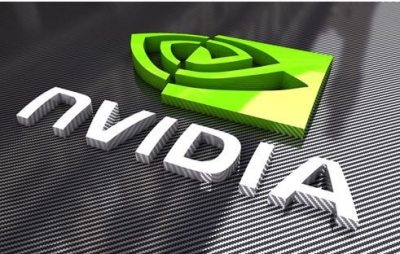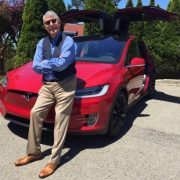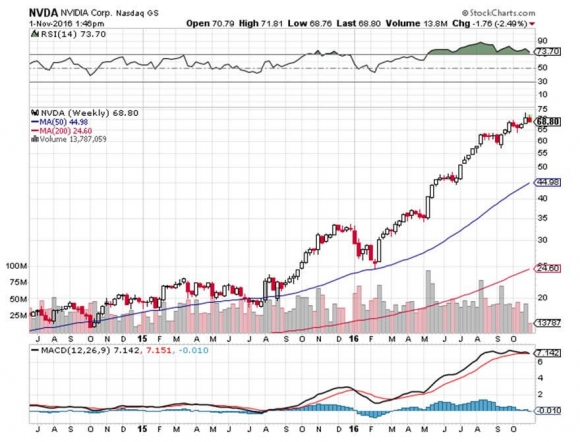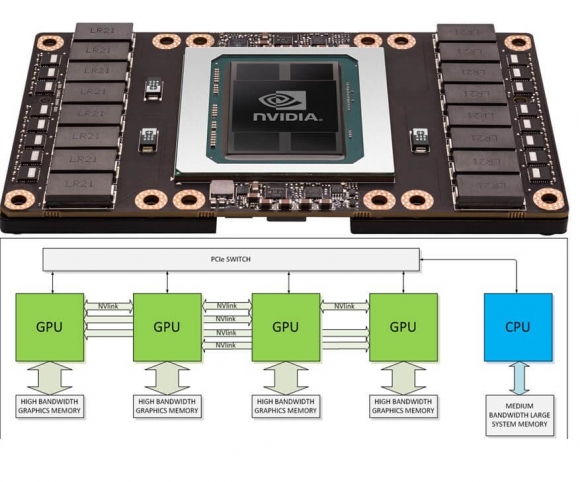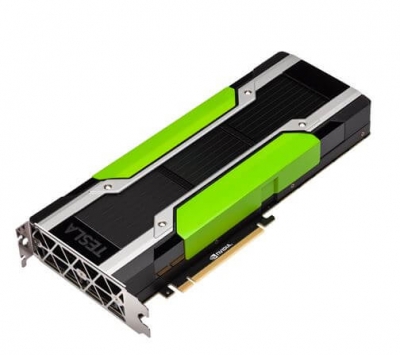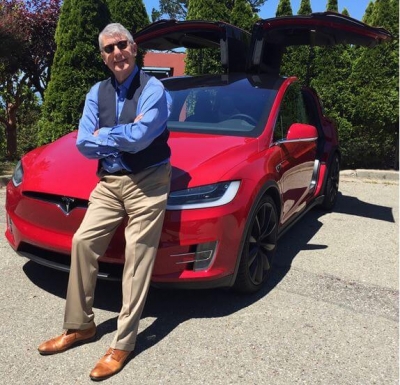The Great Artificial Intelligence Stock Play You?ve Never Heard Of
I have been covering Silicon Valley since it was a verdant, sun-kissed peach orchard in Northern California.
I have to say that in the half century that I have followed the technology industry, I have never seen the principals, gurus, and visionaries so excited about a major new trend.
That would be artificial intelligence or AI.
Asking if AI is relevant now is like pondering the future of Thomas Edison?s new electricity in 1890.
If you think that AI still belongs in the realm of science fiction, you obviously didn?t get the memo. It is all around us all the time, 24/7. You just don?t know it yet.
And here?s the rub.
It is impossible to invest purely in AI.
All new AI startups comprise small teams of experts from labs and universities financed by big venture capital firms like Sequoia Capital, Kleiner Perkins, and Andreeson Horowitz.
After developing software for a year or two, they are sold on to major technology firms at huge premiums. They never see the light of day in the form of a public listing.
Alphabet (GOOG) acquired Britain based, Deep Mind, in 2014. Later that year, Google?s AlphaGo program defeated the world?s top-ranked Go player.
Last year, Microsoft (MSFT) purchased Equivio, a small firm that applies AI to advanced document searches on the Internet.
Amazon (AMZN) recently bought out Orbeus, a startup known for machine learning tools for image recognition.
Amazon?s Jeff Bezos now says that his Amazon Fresh home food delivery service is using AI to grade strawberries.
Really!
We?re not talking small potatoes here.
The global artificial intelligence market is expected to grow at an annual rate of 44.3% a year to $23.5 billion by 2025.
Nearly half of all applications now use some form of AI that by 2020 will earn businesses an extra $60 billion a year in profits.
And from what I have learned from speaking to the major players over the last few weeks, I am convinced that these numbers are low by an order of magnitude.
I have been following developments in artificial intelligence since the 1960s.
There were those feeble computer dating attempts in the early seventies where we all had to prepare IBM punch cards.
I was matched with an annoyingly aggressive real estate agent. (Really?). Her only real qualification was that she was female.
It took decades and tens of thousands of programming man hours before IBM?s Deep Blue could become a chess grandmaster in 1996, defeating Gary Kasparov.
Big Blue?s latest effort came to us with Watson in 2007, an 85,000-watt behemoth, with 90 servers and 15 terabytes of data, or three quarters of the content of the entire Library of Congress.
The machine can read a staggering 1 million books a second. IBM has so far poured $15 billion into the project.
In 2011, Watson defeated the top-rated Jeopardy game show contestant by answering the question ?What city?s national museum lost the Lion of Nimrod??. The answer was ?What is Baghdad??. (I knew that!).
Today, Watson is on loan to the University of North Carolina at Chapel Hill where it has been deployed to cure cancer.
It took scientists a week to teach Watson how to read medical literature. In the second week, it read every paper published on cancer, some 25 million.
By the third week it was proposing customized cures for advanced cancer patients, which achieved a 33% success rate.
After all, it can read all of the 8,000 cancer papers that are published every day from around the world IN SECONDS!
Scientists say that Watson has so far reached only 1% of its true potential.
It gets better than that.
A clinic can now biopsy your tumor, sequence its DNA, design a custom protein that will target and destroy your personal tumor, mass produce it, inject it in your tumor, and cure you of cancer in a month.
This is being done with human volunteers in clinical trials NOW.
Expect this procedure to go retail in about ten years. And by that I mean cheap, locally available, and covered by your health insurance.
I believe that Watson, and its future offspring, will cure the major human maladies within a decade. My generation will probably be the last to suffer serious disease.
It isn?t just Watson that will take us the great leap forward in computing. By 2020, you will be able to buy a low-end laptop for $500 that can hold ALL KNOWLEDGE ACCUMULATED IN HUMAN HISTORY!
They better hurry. That body of knowledge is doubling every 18 months!
It is a key part of my argument that the US will enjoy a Golden Age and see a return of the ?Roaring Twenties? during the 2020s.
If you have in any way been involved in the stock market for the past five years, AI has invaded your life.
High frequency trading and hedge funds now account for 70% of the daily trading volume on the major stock exchanges, and almost all of this is AI driven.
Having spent my entire life trading stocks, I can confirm that in recent years the market?s character has dramatically changed and not for the better. Call it trading untouched by human hands.
Algorithms are trading against algorithms, and whoever wins the nuclear arms race brings home the big bucks.
You used to need degrees in Finance and Economics, or perhaps an MBA, to become a professional fund manger. Now it?s a PhD in Computer Science.
Remember the May, 2010 flash crash, when the Dow Average plunged 1,100 points in minutes, wiping out $4.1 billion in equity value? AI?s fingerprints were all over that.
And only weeks ago, the British pound lost 6% of its value in a mere two minutes, a move unprecedented in the history of foreign exchange markets. The culprit was AI.
Don?t expect the path forward to AI to be an easy one.
Indeed, the machines already have the power of life and death over all of us.
No less figures than Nobel Prize winner, Dr. Stephen Hawking, and Tesla?s Elon Musk have warned that computers and the Internet may have the power to pose a threat to human existence within a decade.
They are especially concerned about the militarization of powerful robots, something I know the US Defense Department is hell bent on developing.
As I write this, the only thing preventing a drone attacking a village in Afghanistan is an Army corporal hitting a red button on a console in Nevada.
In the future, antivirus software won?t be needed to protect your computer. It will be essential to protect you FROM your computer.
You know that massive denial of service attack that hit the United States on October 21, 2016?
I asked one of my friends at security giant Palo Alto Networks (PANW) if it was the Russians again. He replied, ?You better hope it?s the Russians.?
The implication is that the Internet may have launched the attack itself.
Now, about that stock recommendation.
Since we aren?t venture capitalists we can?t buy into pure AI firms in their early stages. And I?m too old to get a PhD in computer science.
We therefore have to be sneaky and get in through the back door via an indirect play which still has plenty of upside leverage.
What is the one medium sized, publicly traded company that most benefits from the AI explosion?
I have found exactly such a company (it was small at the beginning of the year) that represents the marrying of the f
our biggest trends in technology today: AI, self-driving cars, big data, and virtual reality.
That would be Nvidia (NVDA).
The Santa Clara, California based company manufactures graphics-processing units (GPUs) for the gaming market as well as system-on-a-chip units (SOCs).
It is heavily involved in super computing and mobile computing, producing processors for tablets, iPhones, and vehicle navigation systems.
Nvidia, named after the Roman god, Nemesis, was founded in 1993. It was the original supplier of processors for the Microsoft Xbox and Sony?s (SNE) PlayStation 3.
In 2011, it demonstrated the first quad-core processor for mobile devices.
Nvidia has been on an acquisition tear over the past decade, picking up more than a dozen companies to expand its reach in the most advanced AI and manufacturing technologies, as well as picking up some first class talent.
Nvidia has more engineers working on AI than any other company or institution in the world.
Its integrated stack of imaginative chip designs is unmatched.
Its principal competitors are Advanced Micro Devices (AMD), Intel (INTC) and QUALCOM (QCOM).
I spoke to Nvidia CEO Jen-Hsun Huang right after the company announced blockbuster second quarter results, when sales rocketed by 110% year-on-year.
The Taiwan born, Stanford grad co-founded Nvidia in 1993. He bubbled with enthusiasm about the company?s prospects.
He said that deep learning (AI) was progressing much faster than he imagined possible, where major firms use massive clusters of his company?s GPUs.
AI will be the number one driver of Nvidia?s earnings going forward.
Huang also told me that self-driving cars will profoundly change society, and much sooner than you think.
The company has disruption written all over it.
Stock analysts have been stumbling over each other to upgrade their shares, with near term upside targets of over $100 now commonplace. Hint: that?s 51.51% higher than the recent close.
Sales of Nvidia?s flagship product, the passively cooled 16GB Tesla P100 GPU, is being ravenously consumed by data centers around the country, and should grow by 95% during 2016, and another 50% in 2017.
Hold one of these dense, wicked fast processors in your hand and you possess nothing less than the future of western civilization.
Over the long term, the picture looks even better. It should continue with annual earnings growth of 20%-30% a year for the foreseeable future.
At a minimum, the shares have at least another double in them, and perhaps another double after that as well.
To learn more about Nvidia, please visit their website at Nvidia
Sounds like a peach of a long-term investment to me.
As for your computer, you better start leaving it unplugged at night. You never know.
